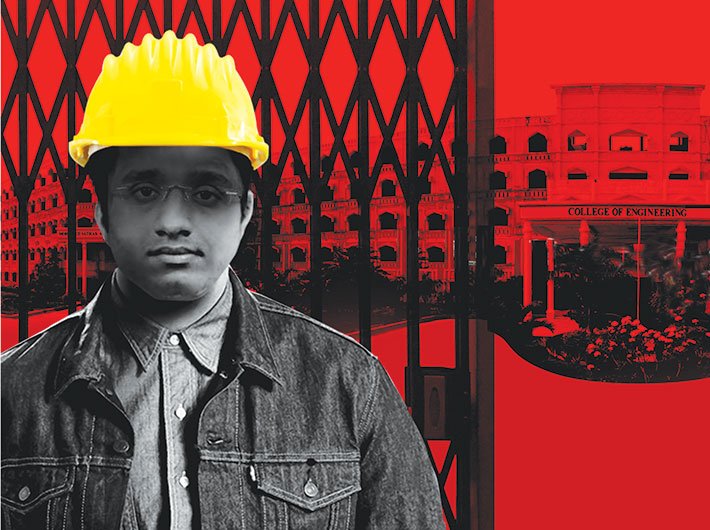Engineering education is in a bad way and science education worse off. A nation that prides itself on imagined ancient technologies ignores the present.
The bad news about India’s engineering graduates continues unabated. Most recently, a study by the Proceedings of the National Academy of Sciences concluded that American students of computer sciences are well ahead in quality than those from China, Russia and India. The only consolation – if it is at all – is that computer engineering students passing out from elite institutions in the latter three countries are on a par with the average American student of computer engineering.
In India, no one should be surprised. Since over a decade ago, consultancies like McKinsey, industry leaders and study after study have tut-tutted at the unemployability of our engineering graduates. And we have a glut of them. In the early 1990s’ talk of a race for development and growth with China, experts had said that our giant neighbour was preparing for its long-term goals by grooming engineers in large numbers. Despite straggling, India rebounded. Engineering colleges came up at street corners and remote hinterland villages, especially in Andhra Pradesh, Karnataka and Tamil Nadu. Many of these were run by politicians or businessmen who were cashing in on the demand for engineers during the IT boom. Quality was given the go-by: most of these colleges had worthless labs and few permanent teachers. Anyone who had cleared Std XII with science and maths could gain admission.
Simultaneously, successive governments engineered the dilution of elite centres of technical education like the Indian Institutes of Technology (IITs) and Regional Engineering Colleges (RECs), now known as National Institutes of Technology (NITs). From the first five IITs (Kharagpur, Delhi, Kanpur, Mumbai, Chennai), we now have 23, with students at many of the newer ones complaining of lack of amenities. Time was when an IIT student inspired awe among peers. Now, the immediate question he will face is, “Which IIT?” The implication is that if he’s not from the top-ranked ones, he’s no better than someone from a ramshackle engineering college. Ditto for students from the NITs and second-tier colleges.
From the mid-noughties and through the early part of this decade, we have been creating 15 lakh engineers every year. The figure has since been on the decline as the authorities continue to derecognise inferior colleges and businessmen shut them down for want of students, who have realised that employment prospects for engineers are bleak. Even so, by a rough estimate, some 10 lakh engineers graduate yearly, about two lakh of them in computer engineering. Most studies say 90-95 percent of the lot are not fit for any engineering jobs.
The cream of the students from elite institutions anyway proceed straight to business schools and onwards to careers in marketing, finance, stock-broking or hedge funds. Middle-rungers gamble their gung-ho spirits on start-ups. So who are we left with to do the boring work of translating science to usable technology or slogging the long hours that result in cutting-edge insights and innovation? With science education at school and college level worse than what our policies have done to engineering education, we cannot hope to pursue our sci-fi dreams in the way the West did, and now China and Japan are striving to. The downing of a low-orbit satellite notwithstanding, we will have to content ourselves with the imagined scientific glories of a hyper-golden past.
sbeaswaran@governanceow.com
(This article appears in the April 15, 2019 edition)

